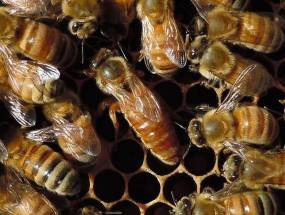New sports integrity commissioner must earn athletes’ trust
Read this article for free:
or
Already have an account? Log in here »
To continue reading, please subscribe:
Monthly Digital Subscription
$19 $0 for the first 4 weeks*
- Enjoy unlimited reading on winnipegfreepress.com
- Read the E-Edition, our digital replica newspaper
- Access News Break, our award-winning app
- Play interactive puzzles
*No charge for four weeks then billed as $19 plus GST every four weeks. Offer only available to new and qualified returning subscribers. Cancel any time.
Read unlimited articles for free today:
or
Already have an account? Log in here »
Hey there, time traveller!
This article was published 26/05/2022 (943 days ago), so information in it may no longer be current.
Lawyer and former artistic swimmer Sarah-Eve Pelletier, Canada’s first sports integrity commissioner, called it a “pivotal” moment in the evolution to top-level sport in this country. With respect, after years of ignoring the concerns of abused athletes, whether her appointment is pivotal remains to be seen.
There are many promising signs accompanying Ms. Pelletier’s appointment. She has been given legal and administrative independence to conduct investigations and report on instances of abuse, a $16-million budget for the first three years of operation and, most importantly, assurances all federally funded sports bodies — if they wish to continue receiving support — will submit to her investigations.
It is an excellent start. But it is only a start, and there are many hurdles the commissioner will have to overcome.

The compulsion that Canada and many other countries have to compete and win on the international stage has created a toxic culture in many sports. Most often, the abuse originates with coaches who are judged solely on results, and are thus allowed free rein to bully, harass and even physically assault their athletes, all in the name of performance.
The compulsion that Canada and many other countries have to compete and win on the international stage has created a toxic culture in many sports.
Elite-level sports have also, for far too long, allowed male coaches to subject female athletes to relentless and pervasive sexual harassment and abuse.
For decades, athletes were reluctant to come forward with concerns, knowing a complaint could end their career. Governing bodies routinely turned a deaf ear to the complaints, interested more in how much success coaches achieved than on how they achieved that success.
Ottawa was finally convinced to act with urgency this past March when more than 60 current and former bobsleigh athletes went public with complaints about a culture of intimidation and fear. Then, nearly 300 gymnasts joined a public campaign demanding an investigation into the toxic culture at Gymnastics Canada.
In April, Federal Sports Minister Pascale St-Onge convened an emergency round table of sport governing bodies and groups that represented athletes to talk about solutions. Her vow was to speed up the creation of the commissioner’s office. On that point, Ms. St-Onge has delivered.
However, the lingering question is why now? This was hardly the first time allegations such as these had burst into the public arena.
Athletes in this country need to know that if a relationship with a coach turns toxic, someone is willing to fight for them.
In 2019, the national advocacy group AthletesCAN conducted a survey of more than 1,000 of top current and former athletes. It found two-thirds of current and three-quarters of former athletes said they were victims of deliberate neglect, 60 per cent experienced emotional distress, and 20 per cent suffered physical harm.
The survey also found about 20 per cent of all respondents had been victims of some form of sexual abuse or harassment. And that in many cases, the abuse had been going on for decades.
In fact, between 2018 and 2020 alone, nearly a dozen national or top-level university sports programs were rocked by allegations of emotional and physical abuse, or sexual misconduct.
Federal officials including Ms. St-Onge may feel it is unfair to question their commitment to making sports safe by reminding them that before we could get to this “pivotal” moment, they spent years ignoring the concerns of athletes.
But history will show that Ms. St-Onge’s “urgent” response is anything but. It may, however, still turn out to be the right response.
Athletes in this country need to know that if a relationship with a coach turns toxic, someone is willing to fight for them. It is now up to the new sport integrity commissioner to prove to athletes she can be that person.






.jpg?h=215)





